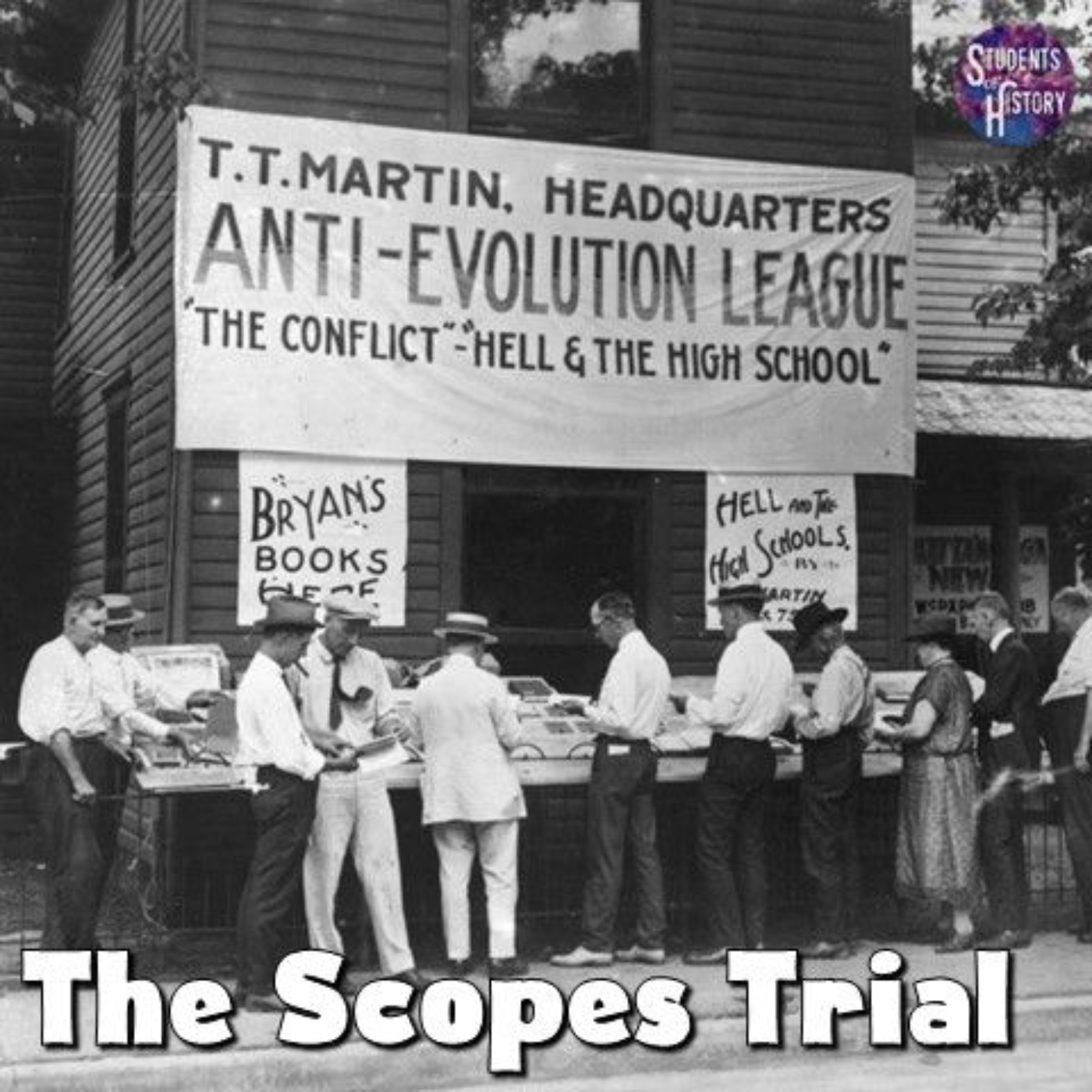The Scopes Trial

The Scopes Trial, also known as the "Monkey Trial", was a massively-followed legal case in July 1925 that became known as the "Trial of the Century".
The case involved a high school teacher, John T. Scopes, accused of violating Tennessee's Butler Act, which had made it unlawful to teach human evolution in any state-funded school. The trial was deliberately staged in order to attract publicity to the small town of Dayton, Tennessee, where it was held.
The famed scientist Charles Darwin described his theory on humans and evolution in his 1859 book On the Origin of Species. Slowly over the next 70 years, America's Christian churches debated whether to accept the findings of science or continue to follow the teachings of their scripture.
In the Roaring '20s, many in Americans found that they could reconcile Darwin's theory with the Bible. However, many Southern and rural preachers preferred a stricter interpretation of the Bible and did not want Darwin's ideas taught in their schools.
After Tennessee prohibited the teaching of Darwin's theories on evolution with the Butler Act, other Southern states followed suit.
However, Tennessee also required teachers to use an assigned textbook that included a chapter on evolution.
The American Civil Liberties Union (ACLU) offered to defend anyone accused of teaching evolution in defiance of the Butler Act. They argued that teachers were essentially required to break the law.
In April 1925, a group of Dayton businessmen met with the superintendent of schools and convinced him that the controversy of such a trial would give Dayton much needed publicity.

They summoned 24-year-old Mr. Scopes, a local science and math teacher and asked him to admit to teaching the theory of evolution. Scopes was unsure whether he had ever actually taught evolution, but he incriminated himself purposely so the case could have a defendant.
The ACLU hired the famous lawyer Clarence Darrow to defend Scopes, while William Jennings Bryan, three-time presidential candidate and former secretary of state, volunteered to argue for the prosecution. The "Great Commoner" was the perfect representative of the rural values he dedicated his life to defend.

The trial served its purpose of drawing intense national publicity, as national reporters flocked to Dayton to cover the big-name lawyers who had agreed to represent each side.
Entrepreneurs sold food, souvenirs, Bibles, and stuffed monkeys to the massive crowds that gathered outside the courthouse each day. The trial became the first ever to be broadcast on radio.
In the most famous episode of the case, Bryan took the stand to support the Bible, while Darrow questioned him on whether everything in it is factual.
The trial publicized the Fundamentalist–Modernist controversy, which set Modernists, who said evolution was not inconsistent with religion, against Fundamentalists, who said the Word of God as revealed in the Bible took priority over all human knowledge. The case was thus seen both as a theological contest and as a trial on whether modern science should be taught in schools.
Clearly, Scopes had purposefully violated the law by teaching evolution. He was found guilty and fined $100 (equivalent to $1,500 today), but the verdict was overturned on a technicality.
However, the battle that played out before the nation proved a victory for supporters of evolutionary theory and was representative of the cultural changes taking place during the 1920's.